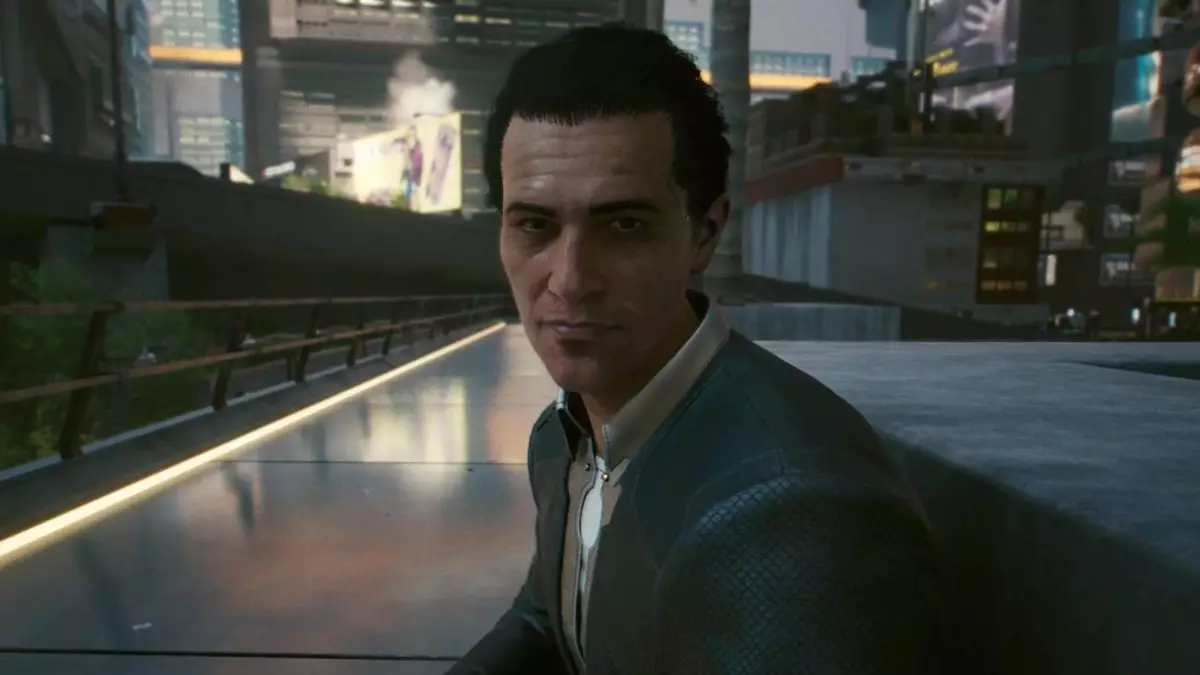Cyberpunk 2077, the sprawling open-world RPG set in the dystopian Night City, offers players a deep narrative interwoven with complex characters and moral dilemmas. One such mission, “Dream On,” tasks players with investigating the eerie apartment of Jefferson and Elizabeth Peralez, who are embroiled in suspicious activities. As players navigate through this mission, their choices have lasting repercussions, making the storyline not only engaging but also thought-provoking. This article will delve into the mechanics of the Dream On mission while also examining the ethical dimensions that arise throughout the gameplay, ultimately offering insights into how players can approach the mission more thoughtfully.
The mission kicks off when players receive a call from Jefferson Peralez, setting the stage for a seemingly ordinary house visit that quickly escalates into a deeper investigation. Upon arrival, players are greeted by the Peralez couple, who initially present themselves as a typical, affluent couple. However, the narrative hints at underlying tensions and potential sinister undertones, inviting players to explore the apartment thoroughly. The design of the apartment is meticulously crafted, offering numerous points of interest; this multi-layered environment not only enriches gameplay but also sets a foreboding tone as players embark on their investigative journey.
Players are encouraged to engage with their surroundings by scanning objects and examining details within the apartment. This interactive approach allows players to piece together information, uncovering clues that indicate the Peralez couple may be victims of surveillance rather than mere suspects in a criminal enterprise. The mission highlights the balance between exploration and narrative, compelling players to actively participate in an unfolding mystery rather than just passively observing it.
As players delve into the apartment, they encounter various interactive elements that contribute to the narrative’s progression. Key items to investigate include the smart glass screen, which serves as a pivotal moment in gameplay; those with a Technical Ability attribute high enough can attempt to repair it, leading to unexpected consequences. This added layer of interaction mirrors the unpredictable nature of technology within the game, emphasizing the risks involved with tampering with security systems.
Moreover, players can choose to force their way through locked doors or access computers to find sensitive documents revealing the darker aspects of the Peralez’s lives. Such decisions are not mere gameplay mechanics; they echo a central theme in Cyberpunk 2077 concerning the implications of power and privacy in a technologically advanced society. This brings forth questions regarding personal autonomy and the right to privacy, urging players to reflect on their real-world parallels.
The culmination of the mission revolves around a critical choice concerning the fate of Jefferson and Elizabeth. After gathering evidence revealing the unsettling extent of their surveillance, players face a crossroads: they can either disclose the truth to Jefferson or support Elizabeth’s misleading narrative. This decision-making moment is significant; it encapsulates the moral ambiguity that permeates the narrative of Cyberpunk 2077.
The choice players make not only alters the outcome for the characters involved but also challenges them to consider the ethical implications of their actions. Should Jefferson be safeguarded from the harsh reality of government surveillance, or is he entitled to know the truth, regardless of potential consequences? Such weighty considerations elevate the mission beyond simple gameplay mechanics, transforming it into a philosophical debate on truth, trust, and the moral obligations one holds to their friends and allies.
In a mission that starts from a routine request for help and evolves into a philosophical dilemma, “Dream On” encapsulates the essence of what makes Cyberpunk 2077 a unique entry in the RPG genre. Players are granted the autonomy to navigate through a web of choices that reflect not only their character’s personality but also their moral compass. As Night City continues to be a backdrop for both high-octane action and intense narrative decisions, players must remain vigilant about their actions and the hidden consequences they may foster.
Ultimately, the Dream On mission invites players to look beyond surface-level investigation and engage with deeper narratives about trust, privacy, and the often blurred lines between right and wrong in the digital age. In doing so, it offers not just entertainment, but a poignant commentary on the nature of existence in a technologically driven world. Engaging with this mission provides a reflective lens through which we can examine our own choices and their ethical implications, both in-game and in reality.


Leave a Reply